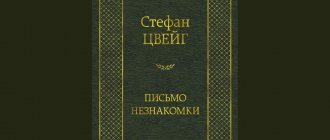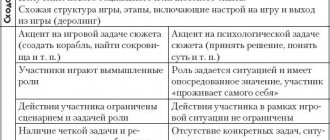Psychology is a very interesting, but complex and controversial science. Studying psychology from textbooks provides academic knowledge. However, more effective results can be achieved by using modern methods of obtaining information:
- reading thematic blogs (including BrainApps);
- reading books on psychology and discussing them;
- taking courses and trainings;
- attending seminars and webinars.
In this article, our team has collected the best books on psychology among textbooks, modern literature and bestsellers of all time. In this review, we will try to find the answer to the question - which book on psychology is the best, and will also provide a list of recommended literature on child psychology, relationship psychology, gesture psychology, and so on.
Where to start studying books on psychology?
- Review
- What is she famous for?
- Video review
- Free
- about the author
- Video example
Labkovsky is cool, and despite my reading, I read it with pleasure - and this is the main reason why I recommend it.
The book is imbued with experience and examples from life and practice. The book “I Want and I Will” is actually a squeeze out of a bunch of Mikhail’s radio broadcasts. There is no discovery or novelty in it. Having read 50+ books on psychology and listened to about 50 of his broadcasts, I was still interested in reading every page - this is very rare.
The book is ideal for developing a taste for reading books on psychology. Definitely worth reading for beginners.
Labkovsky’s method for almost any problem comes down to: listen to yourself, do what you want and don’t do what you don’t like.
Simple, easy to read. It is important to take only useful things from it. Labkovsky advises people briefly, breaking their stereotypes with other stereotypes. Many inaccuracies and simplifications are a minus. But thanks to this, the book reads like a living dialogue.
A country rich in people with a victim mentality quickly adopted Labkovsky’s simple rules of conduct. The purpose of the rules is to rebuild an unhealthy psyche and learn to understand your desires.
There are many vultures around the victim, following these rules will help you avoid taking the bait and learn to recognize when you are being vampirized.
To learn to apply these rules in life, you need to rebuild your usual reactions and behavior. It will take at least six months to rebuild your psychology and attitude towards life.
And first, understand how to apply them in real life, in everyday situations.
The author of the book is a cool psychologist, he speaks convincingly and his words sound reasonable. Strive not to understand it literally, but to grasp the main idea and apply it in life.
Check out the best alternative book review.
If you know nothing about psychology, if you are a psychological virgin, you will lose it with this book. Victoria Isaeva
Recorded radio broadcasts. Highly recommend, I've listened to over 50 of them.
- “Misha + Katya” - studio video recordings on Stolitsa FM.
- “For adults about adults” on the radio station “Silver Rain” (from 2016 to today).
- “For adults about adults” on “Echo of Moscow” (2004 – 2012).
To start reading books on psychology, you need to instill in yourself a taste for reading psychological books. To do this, you should start reading popular books from popular psychologists. One of the best psychotherapists in his field is Mikhail Labkovsky.
Mikhail is a family psychologist with 30 years of experience. He has been consulting live on radio for over 20 years.
The highest paid psychologist in Russia. The cost of a personal consultation is $830 for a 45-minute session.
I am convinced that you need to live in such a way that it is pleasant.
Where to start reading books on psychology? - from Labkovsky’s book and lectures.
Introduction to psychoanalysis. Sigmund Freud
The work presented to the reader’s attention is a detailed course of lectures that the author read over two semesters from 1915 to 1917. This course contains information about psychoanalysis and its components, which represents a holistic and complete picture of this psychological theory, developed by the author himself.
The textbook consists of three large parts and a separate part with continued lectures. The first part (four lectures) discusses in detail the topic of erroneous personal actions. The second part (eleven lectures) is devoted to dreams. It discusses the difficulties of understanding this phenomenon, assumptions and interpretation techniques, the content of dreams, their symbolism, work, analysis and many other issues related to the topic. The third part (thirteen lectures) deals with the general theory of neuroses, the meaning of their symptoms and the ways of their formation, a person’s sexual life, his libido and many other things.
Continuation of the lectures on introduction to psychoanalysis are lectures on the topic of revising the theory of dreams, the connection between dreams and the occult, the division of mental personality, femininity and some others.
Popular books in economic psychology
Psychology of money
- Review
- Video summary
- Main ideas
- Quotes
- about the author
- Buy
The simplest book on financial thinking.
Written in the style of an autobiography and very addictive. I advise you to read it for those who do not understand the difference between an asset and a liability. To be financially independent, it is enough to have an income of $4,000 per month. You don’t have to be a millionaire to live happily and not think too much about making money.
The author teaches correct thinking, which is important at the beginning of an entrepreneur’s journey. The difference in the psychology of a rich person and a poor one is shown. The rich are financially literate, take risks, develop their strengths, and are results-oriented. The poor person is sure that the only way to increase income is by working harder.
Review of a book about the difference in the psychology of a rich and poor person: Review
Review of the book "Cashflow Quadrant" that will take you from poverty to wealth: Review
- The amount of money in your wallet depends on our psychology.
- Most of all, our unconscious beliefs acquired from our parents influence cash flow.
- The rich do not work for money, but make money work for themselves.
- Minimize liabilities, increase the share of assets. Asset – generates income – business, real estate for rent. Passive – generates expenses – your home, car.
- Choose a job and develop yourself in such a way that you can turn the acquired skills into an asset.
- If your job does not provide you with financial ease, look for another one.
- Restructure your psychology to the belief “Risk is a plus.” The risk must be disproportionate. You invest $1000, if you are unsuccessful, you lose money and gain experience. If successful, you receive $10,000 and experience.
Spending your entire life in fear without ever achieving a single dream is cruel. Working hard for money and thinking that it will buy you things that will make you happy is scary.
Rich people acquire assets. The poor and middle class acquire a liability that they consider an asset.
One father recommended: Study more to find a good company to work for. Another father recommended: study more so that you can find a good company and buy it.
Robert Kiyosaki is the most famous businessman in the book business of the “Psychology of Money” and “Financial Thinking” genres. It seems that Robert became rich not before writing the book, but after its publication. In his work he argues the opposite.
Buy
Psychology of attitude towards money
- Review
- Quotes
- Buy
The simplest book about attitudes towards money .
I recommend reading it to those who are always short of money. The most primitive recommendations about finances are given, which poor people do not follow. Don’t spend all your money, control expenses, don’t take out loans, increase your income. Invest where you are strong. If you want to make money, and they offer you to organize a tile printing business - they will teach you everything and sell you equipment - then you are the end client of their business. They know that you can’t make money from tiles, but you can make money from selling equipment and training.
Wealth that comes quickly also goes away just as quickly. Wealth, which brings true joy and satisfaction to its owner, comes gradually, and is based on strong knowledge and hard work.
Buy
"The Six Pillars of Self-Esteem" by Nathaniel Branden
Low and unstable self-esteem is a serious problem that millions of people try to live with.
If you are tired of living in constant uncertainty and putting up with a bad attitude towards yourself, then Nathaniel Branden's book will give you everything to fix it. In addition to examining the concept of self-esteem and how important it is in our lives, Branden details six actionable frameworks (6 pillars) that will help you develop a healthy attitude towards yourself. The author teaches how to reveal your own “I” and remain liberated, no matter what. This book is perfect for anyone who lacks self-confidence.
Interesting books on relationship psychology
Psychology of relationships between men and women
Men are from Mars, women are from Venus
- Review
- Quotes
- about the author
Men and women need different things in relationships and they perceive the world differently - the whole book is about this.
A man needs to feel his strength, and a woman needs it. I recommend for beginners to study the psychology of relationships or when you make the same mistakes with your partner. In the book you will find tips on how to build more harmonious relationships.
John simply expresses his views on relationships, pointing out the reasons for such and such reactions of a man based on stereotypical views of a man. And stereotypical views are usually formed on the example of mentally weak men, because there are simply more of them in the world.
Healthy men and women often behave differently than described in the book; they have different reactions and needs. But that’s why they are healthy, so as not to fit into the book about unhealthy relationships.
We mistakenly assume that if our partner loves us, then he will behave the same way we do when we love someone.
Making a man your only source of support and love is placing too much of a burden on him.
Giving without expecting anything in return, being there when you are truly needed: this is true love.
Men need trust, women need care.
A man automatically alternates between two needs: intimacy and independence.
Giving a man unsolicited advice is the same as questioning his ability to decide and act for himself. That is why they perceive interference so painfully: it is very important for them to realize that they can always cope with everything themselves.
I recommend this book for men and women starting to build healthy relationships.
John Gray is a family psychologist, author of books with a fresh look at relationships between men and women. His book was included in the top ten most influential books on psychology.
Buy
"I Read Your Mind" Glass Lillian
Surely, each of us dreamed of having such a skill as reading minds, because then life would be much easier. Glass Lillian's book will give you this opportunity.
Having studied the psychology of body language with its help, you will be able to accurately “read” people, understand whether they are telling you the truth, and guess desires. Voice intonation and timbre, manner of speech, features of facial expressions, characteristic gestures - you will learn to pay attention to all this and “translate” this body language into human. “I Read Your Mind” will give you a special understanding of people, which is simply necessary in the modern world.
The best books about the subconscious
“Textbook of the Master of Life”, “Recipes of Fate”
Both are worth reading. About how to stop being a victim and take responsibility for your life. A man staring at the reader like Jesus is scary, but don’t be afraid.
If you are dissatisfied with life, offended, angry, waiting for something - read! If you are happy and everything is great, read it too!
The book is very cool, a lot of topics are revealed briefly. Suitable for diagnosing your personal life: if the lesson you read has touched you, write down the topic for elaboration.
More about the work of the subconscious. Like the first one, it is good for diagnostics. I don’t re-read books, but I will re-read these in a couple of years.
I liked the idea: we get sick because our worldview is sick. Our model of the world does not coincide with the real world. The model of the world is in your head and it is worth rebuilding it, not treating the world.
Book about the subconscious
I listened to an audiobook, all my knowledge flew by, I need to read it. But for me it’s an indicator that if I haven’t heard anything that would have offended me, it’s not mine. Read it or not - decide for yourself. Review.
The book was remembered for this - visualize your desires, believe in yourself and everything will be great. If you doubt that “anything is possible,” read this book on the psychology of the subconscious.
Daniel Goleman "Emotional Intelligence"
Photo source: psychologies.ru
Psychologists have long come to the conclusion that personality structure includes not only an intellectual, but also an emotional component. But before Goleman’s work, experts paid little attention to the emotional component. The generally accepted point of view was that a person is only as successful as his intelligence. Often the level of intelligence of applicants for a particular position was determined by the Eysenck test.
Daniel Goleman, Ph.D. from Harvard University, has proven that personality theory is incomplete without recognizing emotional intelligence. Often it is emotions, not intellect, that determine a person's success in society. Interestingly, Goleman was twice nominated for the Pulitzer Prize.
Goleman described the purpose of his book Emotional Intelligence as “bringing reason into the world of emotion.” He analyzes how the brain works and why feelings suppress rationality. Describes the mechanisms of formation of emotional intelligence and the dangers that await people who are unable to control their own emotions.
The book has sold more than five million copies in the United States alone.
List of books on human psychology
is worth reading for women . Outwardly, it seems like a book for damaged grannies, but it’s cool. Briefly.
I was amazed - how many fears I have: while I was reading, I collected 50 - these are only the most powerful ones. Even after 4 years of active work, I’ll write out about 150-200 per hour - they don’t show up much, but just give them the right opportunity - they’ll come out right away. Moreover, about 90% of fears are social. Not a fear of heights, but, for example, a fear of making mistakes.
The best book for realizing how many fears arise in life every day - hundreds! If you don’t believe me, read it, just don’t forget to be honest with yourself.
She gives one technique for working with all fears. I worked on it for a couple of weeks, every day. According to her method, even after several years, at least once a week, I let go of some kind of fear.
“Good girls go to heaven, and bad girls go wherever they want” Erhardt Ute
This book is useful reading for young girls and mature women. It talks about how in the culture of many nations it is customary to raise girls to be soft and submissive from childhood. They are taught that the main purpose of a woman is to be a caring mother and a good wife.
Following this ideology, girls give up their careers and put the interests of the family above their own. Such suppression does not allow natural talents and abilities to manifest themselves. It makes a woman uninteresting in the eyes of others, and most importantly her husband.
The call of the book is to ask yourself questions: how do I feel, where am I going, what do I want. Listen to yourself and begin to realize yourself, move towards your own goals and achieve them. published
Subscribe to our youtube channel!
PS And remember, just by changing your consumption, we are changing the world together! © econet
Books intended for psychologists
I recommend it for psychologists. Complex and incomprehensible - a scientific work. It requires serious study and analysis of life situations in order to understand the underlying concepts.
The main book on scenarios laid down in childhood, but without additional help - you will understand and work on your own. Cool concept of internal personalities: Parent, Adult, Child - I use it all the time.
It’s difficult to read, thoughts in the style of “Deprivation is not yet frustration.” Only for advanced people. Lots of interesting ideas and comments.
If you read about “Maslow’s pyramid”, then know that this is not his doing. He talked about the hierarchy of needs. Many articles describe this pyramid and criticize it, but it is immediately clear that they have not read his 600-page work! He writes a lot of reservations and exceptions about the hierarchy of needs. Smart researcher.
“Accented personalities”, K. Leonhard
The term “accentuation” was introduced by Leonhard. By this he understood overly expressed character traits, which are an extreme version of the mental norm and border on a pathological condition.
The book is written in lively and simple language, so it is quite suitable not only for professionals, but also for anyone interested in psychology.
Larisa Milova
In the work, which has become one of the most popular in the field of psychiatry, the author conducts a psychological analysis of accentuated personalities and analyzes examples from fiction.
Books on general psychology
A simple presentation of the laws of the universe in Hermeticism. “Everything is a thought”, “As above, so below”, “Everything moves”, “Everything has a cause and effect” - I highly recommend learning about them, everyone mentions them. Theses.
A book for beginners' psychology . It is written clearly, well structured, the main ideas are highlighted. Helps to work with fears, guilt, and other heavy burdens. The concept of idealization.
The only one who writes about idealizations in detail and clearly. There are as many idealizations in an ordinary person as there are fears. Dissatisfaction with life is due to the idealization of the world, internal non-acceptance of what a person sees. And he says to himself, “It shouldn’t be this way, but it should be like this,” he’s dissatisfied, he gets angry, and he ruins his life. If this is about you, be sure to read it, stop torturing yourself.
A book about 5 types of mental trauma, everyone carries at least a piece of these traumas. You read and think, “Wow, this is definitely about me. Now I’ll find out what to do…” and you won’t find out. A reference book for diagnosing injuries, but using this book alone is difficult to treat yourself.
According to reviews, the next book, “Healing Five Traumas,” provides both a diagnosis and a healing tool. But I didn't read it. Decide for yourself.
Structural description of all types of consciousness of humanity. I read it with the feeling: “Wow! Cool, wow!”, and a year later I can’t remember anything. After the chapters, exercises are given - they were the ones that caused the “wow”. There is no point in reading it and not doing the exercises.
I set myself a goal for the year to complete all the exercises, and failed. The first “find a coin” exercise happened in India, I spent 10 hours searching! I didn't find a single coin! After 3 months, in Karelia, I repeated, I found 3 coins at once. It depended heavily on the environment. Abandoned.
It seems to be about restoring vision. But I remember it as an appeal to losers and slackers. I read it with pleasure.
Didn't encourage me to do the exercises. I didn’t remember anything except the passage about laziness. Although her task is to restore vision, I’m fine with it. He beautifully sends out lazy people with three letters.
“Why are we wrong? Thinking Traps in Action Joseph Hallinan
An interesting book from a famous journalist, Pulitzer Prize winner and teacher at many American colleges.
It provides clear examples of mistakes that people unknowingly make. On their basis, intuitive decisions are made that affect the outcome and sometimes provoke a disaster. For example, a malfunctioning luminous part on an aircraft control panel causes incorrect actions by the pilot and leads to an accident. A sports team playing in dark uniforms is less visible and receives more penalty points. A candidate participating in a debate attracts attention to his appearance, arouses trust or, conversely, antipathy. And his speech and slogans fade into the background.
Many factors influence making not always the right decision: multitasking, overestimating one’s own strengths and following stereotyped thinking. This leads to losing sight of important details that complement the overall picture.
The book contains recommendations on what to do to avoid making mistakes.
Books on the psychology of manipulation
Boring, but worth reading. Some methods of manipulation are explained, with real-life examples. It is easier to avoid injury when you are familiar with the attacker's weapon. Article. Squeeze.
After reading, you will notice much more often when they are being manipulated. I see this done to me every day. Advertising, prices, sales - everything influences my choice.
There are better books. A classic of practical psychology, influence, manipulation. Theses.
There are many examples from life, though from the last century. In general, the book is a compilation of everyday psychology. It reveals a lot of ideas, but it is better to study other books.
How to stop worrying and start living. Dale Carnegie
This work consists of numerous recommendations on various topics related to the practical side of applying psychological knowledge. The book contains advice on getting rid of anxiety and worry, finding happiness, harmony and well-being, solving financial problems and resolving difficult situations at work, increasing personal productivity, getting rid of bad habits, etc. The information is intended for people of any social group: housewives, teachers, businessmen, managers, creative people, students, psychologists, etc.
As already mentioned, the presented book is a collection of practical tips and recommendations. The first part is devoted to the basic principles that a person should know about anxiety and its nature. Next, we talk about the basic methods of analyzing feelings of anxiety and ways to get rid of the habit of worrying. The second half of the book outlines ways in which a person can adjust himself to feelings of happiness and peace, and also change his attitude towards criticism from other people. And in the final part, the most effective techniques are proposed on how to maintain tone, energy and state of mind at a high level. At the end of each part of the book, the author provides a brief summary of the material presented.
Not recommended books on psychology
Life is a commercial book, I fell for the beautiful design. Review. Some of the ideas are from his previous books, and are filled with questions and empty fields for filling in answers to: “Where do you see yourself at 30–31–32–35 years old?” I tried to answer, to somehow get back the money invested in the book, but it didn’t work. Garbage.
“The games that the “I” plays are complex and incomprehensible. I liked a couple of thoughts, but the rest passed by. All I remember is that there were muddy thoughts about: “I”, not “I”; sects; ways of development. The world has not become clearer.
Games People Play. Eric Bern
This unique book provides detailed descriptions of games that allow a person to comprehend transactional analysis, i.e. a psychological model with the help of which it becomes possible to describe and analyze individual and group behavior of people. The book pays particular attention to philosophy, theories and methods by which people can better understand themselves and the characteristics of their interactions with others.
The book consists of 4 parts. The first part provides the author's general considerations regarding transactional analysis. The second part is devoted to such topics as parental programming, human destiny, the influence of ancestors, human development in childhood, difficulties arising in childhood, adolescence, maturity and old age. The third part presents the types of scripts in which people act and how they are communicated. The final part examines in detail the scientific approach to scenario theory, examines objections to scenario theory, problems of methodology and the scenario questionnaire.
Harmful psychological literature
Slag . And I believe without evidence that it is harmful. The author imposes a vision of the world, but not a constructive one. Anti-propaganda.
I practiced a couple of “protocols” for clearing mental debris. But I felt like a strange type who, instead of solving problems, programs himself “not to see them.” Instead of cleaning the room, the technician sweeps all the garbage under the sofa. It’s even more difficult to remove from, and it stinks no less. Like everything “fast and effective”, it only puts blinders on.
Later I learned that there are also paid “protocols” for cleaning garbage. Imagine if Jesus were a coach, half a sentence for free: “Love your neighbor like <buy for $50>.”
"Tribe" Junger Sebastian
The author is a director, military journalist and frequent speaker at TED conferences. His listeners are divided into two camps: some cry, others loudly indignant.
This book is a collection of lectures and scientific articles. Tells about the influence of modern society on the human psyche. People are increasingly being diagnosed with depression and post-traumatic stress disorder, even though there is no shocking event in their immediate environment.
The author refers to the findings of anthropology and convincingly proves that people are traumatized not by personal losses and wars, but by general disunity. And provides a method for getting out of a depressed state.
Stanislav Muller - “Become a genius! Secrets of super thinking."
0
Do you know how to make money? Have you mastered the art of communication? Have you learned to control your body? Are you confident in your memory? Not quite? So it's time to turn on your brain! How? Using the latest technologies to activate the brain and control thinking processes! The author's technique of Stanislav Müller allows you to include the so-called state of superlearning in almost everyone, regardless of the level of hypnotizability, age and other factors.











